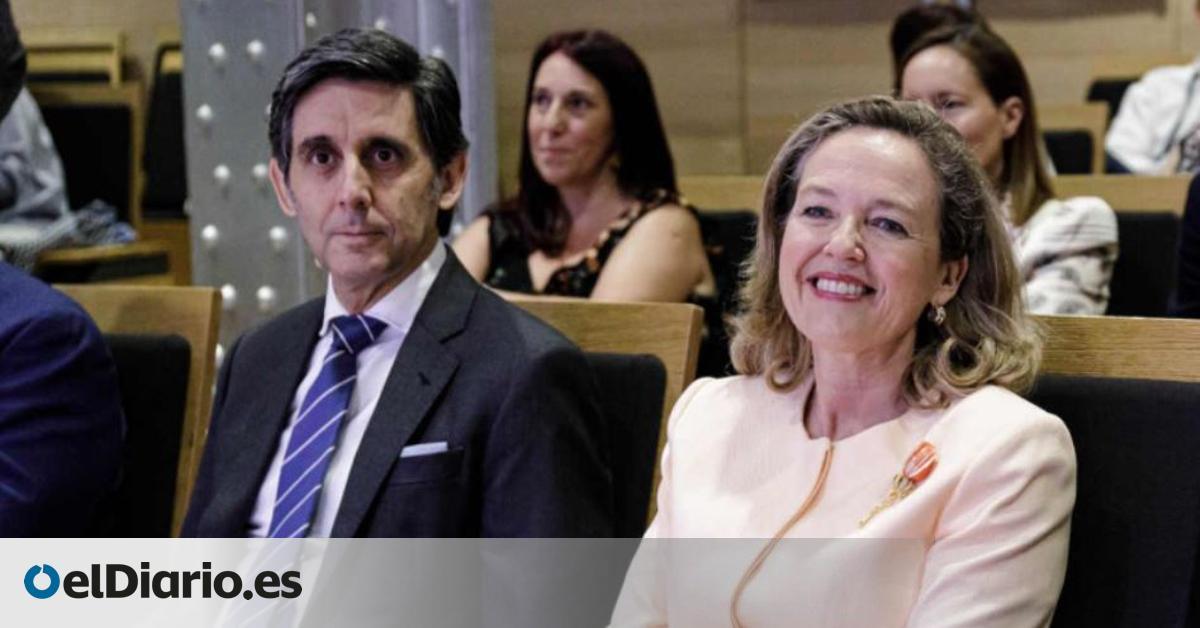
The increase in strategic dependence is one of the main concerns of the EU, which has been obsessed for some time with increasing its capabilities to limit dependence on other powers; but also promoting regulation that protects the economic interests of the 27. The increasing weight of powers like China led the EU in 2021 to put a stop to foreign investment and, previously, to devise a control mechanism for Foreign Direct Investment (FDI, for its acronym in English) that endorses Member States to prohibit or short-circuit operations on European companies in strategic sectors, as is the case of Telefónica. Now, the European Commission set the framework and supervises the processes, but the final decision corresponds to the governments.
The Government assures that it will “protect the strategic interests” of Spain before the entry of Saudi Arabia into Telefónica
Further
Brussels ignores, therefore, the decision on the purchase of 9.9% of Telefónica that the Saudi operator STC intends to carry out and leaves the ball in the court of the Government of Pedro Sánchez, who has already warned that “it will protect the strategic interests” of Spain. By activating its own anti-OPA mechanism, the Government will have to notify the European Commission, which will analyze the case and issue an opinion on the possible risks, but with a merely advisory and non-binding nature.
“We have an EU framework for the control of foreign direct investment (FDI) since October 11, 2020. The objective is to identify and address possible threats to security or public order in the EU,” explain sources from the European Commission: “Member States and the Commission assess, on a case-by-case basis, whether a specific acquisition threatens public order or safety and, if so, suggest appropriate measures to mitigate those risks. An FDI ban is considered in cases where risk mitigation does not appear possible.”
Protective umbrella against powers
When is an investment considered to affect security or public order? If it is related to critical infrastructures or technologies (as is the case of Telefónica), with the supply of energy or raw materials, as well as with food safety, with sensitive information or with the media, according to the regulation for control of these types of investments.
In the case of the Saudi operator, it not only meets the first requirement of affecting critical points in an EU Member State, but also another of the key points to activate alarm bells: that the foreign investor is directly or indirectly controlled by the Government of a third country. STC is owned by the Saudi State through the PIF sovereign wealth fund.
The regulation establishes that the Member State concerned by the operation has to notify the European Commission, which will analyze the case and issue its opinion. But it is up to the Government to decide, formally through the Ministry of Defense, whether or not to authorize the acquisition of 5% of Telefónica by STC, which has already taken over 4.9% of the telecommunications company but needs permission to the remaining principal. “The decision regarding any foreign direct investment subject to control or regarding any measure adopted in relation to a foreign direct investment that is not subject to control rests exclusively with the Member State in which the foreign direct investment has been planned or carried out.” establishes the regulation.
A broad level of authorization
Since this common anti-OPA umbrella for the 27 was launched, Brussels is behind in publishing the data and the latest available are those of 2021. Then there were a total of 1,563 authorization requests, a notable increase of this type of operations compared to the year of the pandemic (52% more) but also compared to 2019, before the coronavirus crisis caused a significant slowdown. The increase compared to the pre-pandemic was 11%.
71% of the cases passed the filter directly as they did not affect security or public order, while 29% were scrutinized. The vast majority (73%) received authorization and only 1% were banned. In 23% of the cases they were authorized with some conditions or measures to mitigate the impact.
The Chinese purchase of the Port of Hamburg
Although Brussels maintains that it does not rule on specific cases to keep the transactions confidential, the most paradigmatic case in this type of process was that of the purchase of the Port of Hamburg – the third most important on the continent behind Rotterdam and Antwerp. by the Chinese shipowner Cosco. In this case, the reluctance of Brussels regarding the operation did filter through, but the Government of Olaf Scholz ended up authorizing it after an intense internal debate, although with a smaller participation (24.9% compared to the initial 35%) to prevent the company from China had a blocking minority.
Five EU countries account for 85% of notifications to Brussels for foreign direct investment: Austria, France, Germany, Italy and Spain. Regarding investors in the EU, the United States leads the ranking (40%), followed by the United Kingdom (10%), China (7%), the Cayman Islands (5%) and Canada (4%) while Russia ( 1.5%) and Belarus (0.2%) were at the bottom of the table.
Source: www.eldiario.es

